For long time I didn’t share any my “creations” here, in my blog. I still do baking, pastry but by somehow I didn’t feel good to post anything! We are nowadays struggling very much with the pandemic, for over a year! I do miss my travels, a lot! So I decided to recall, to share some of my trips in the past or even recently within the country.
Today, suddenly, I’d like to share one of my favorite cakes, I love it very much as it brought me back to my childhood, the happiest time! It’s a traditional Vietnamese sweets, originally from Mekong Delta, very popular, we call it by quite an unusual name – Pork’s skin cake (Bánh da lợn)
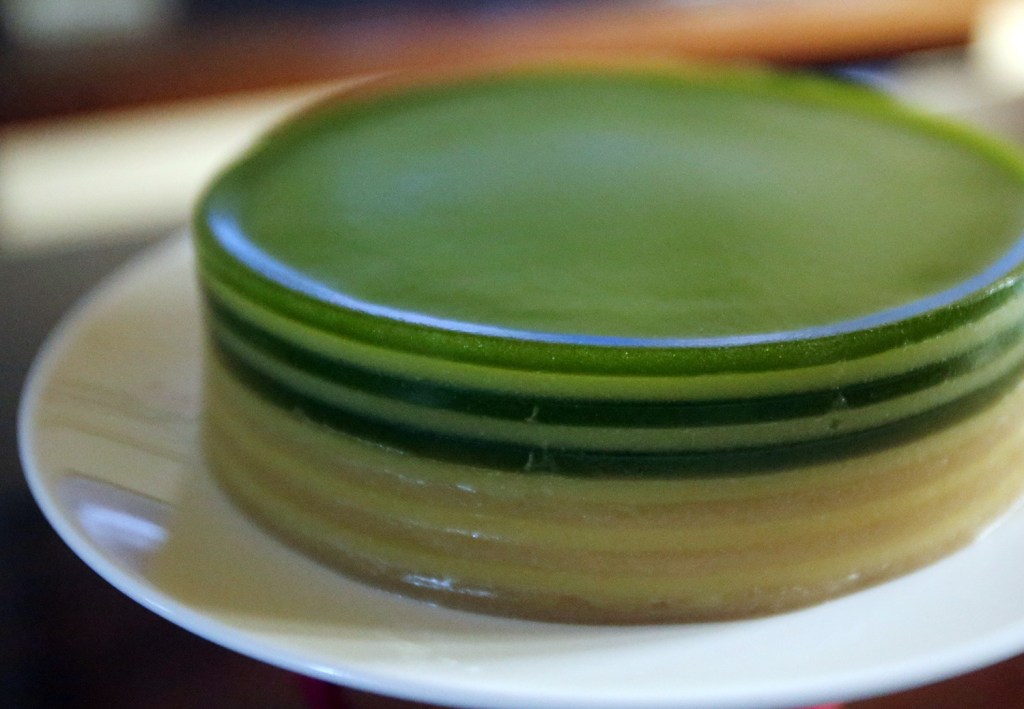

I love this cake very much as I remember, at age of 5 or 6, I was sitting patiently near to some young ladies, in my neighborhood, curiously watching them making this flavorful cake by using the mold made of the bottom haft of beer can. I was curious about the cake and also about the mould – very creative, it gave the cake a very good shape! Nowadays no one need those used cans anymore for making the mould cake!
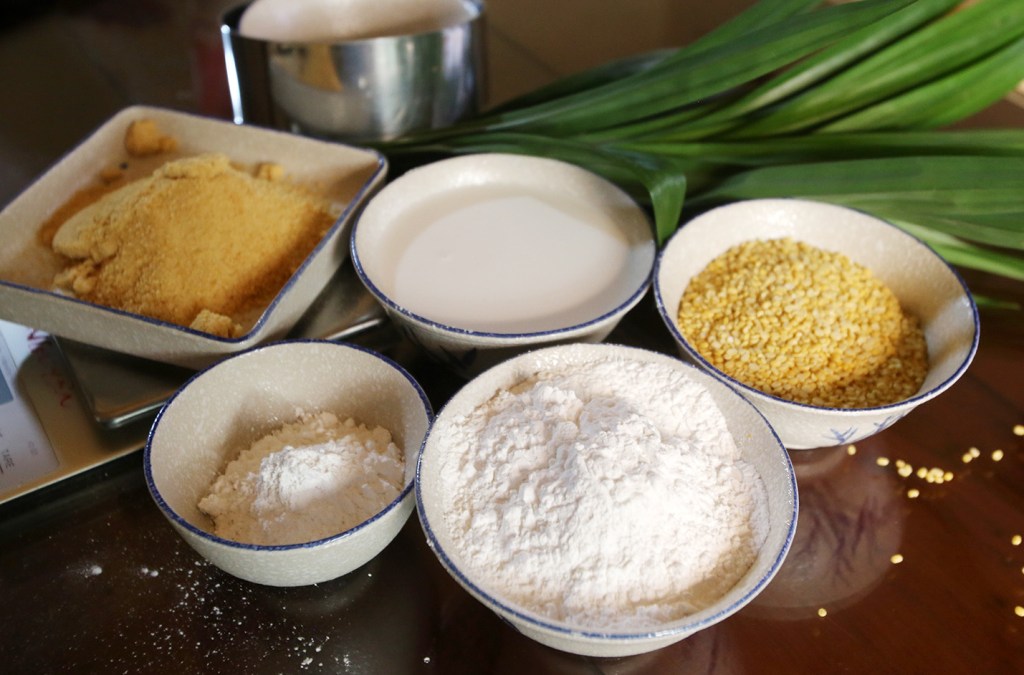
Back to the name – Pork’s skin. There is nothing related to the pork’s meat in the recipe. This sweet cake made of tapioca and rice flours with green mung bean, coconut milk and pandan leaf extract. I don’t know why people give this so yummy cake a quite rough name – Pork’s skin (da lợn), probably due to the chewy texture and the layers of the cake, the shining look…but in the North, we have a better name “Thousand clouds”, due to its multiple layers…Anyway I do prefer the southern version, more authentic!
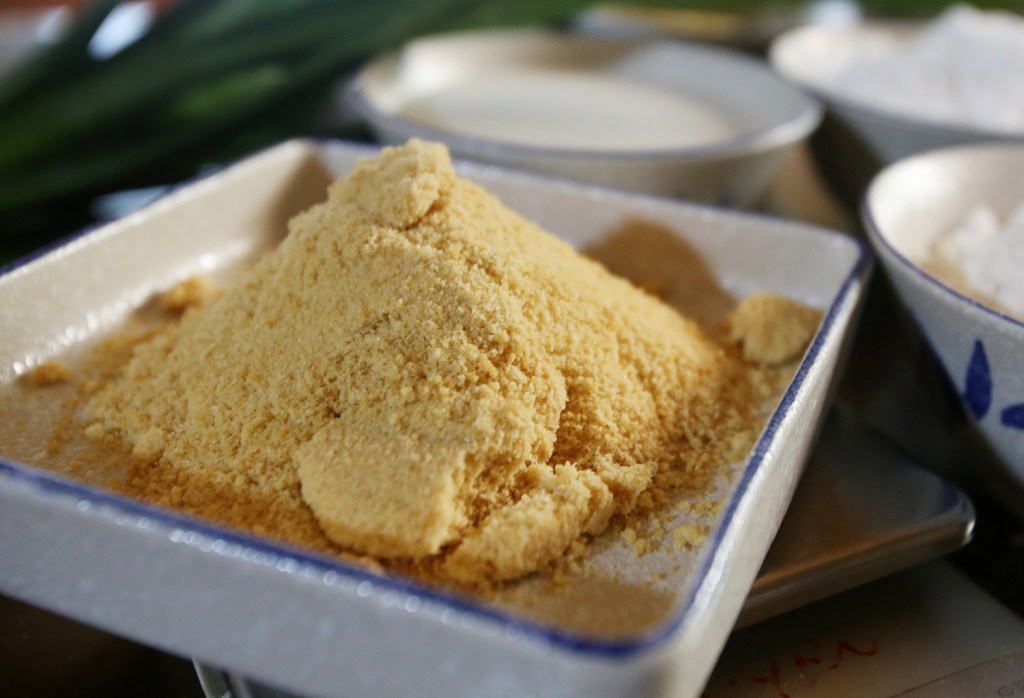
Palm sugar is very popular in South of Vietnam, and probably in South East Asia, especially in Cambodia, Thailand, Malaysia…we use a lot in cooking and baking thanks to its flavorful and nice sweet taste! But originally most people do the cake with regular sugar to reduce the cost!
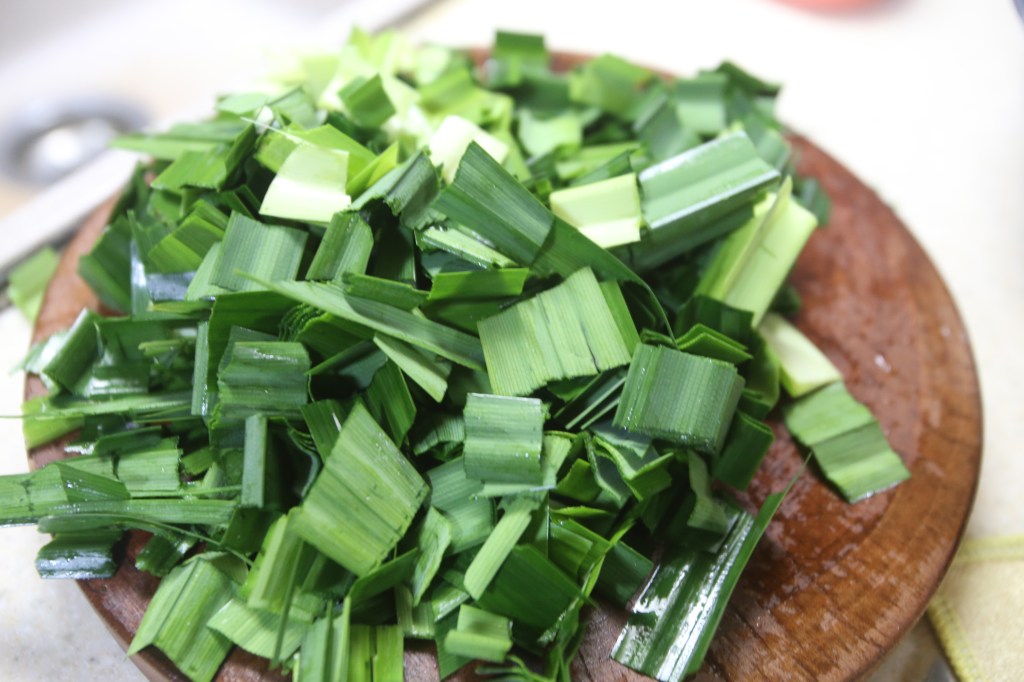

We probably don’t need palm sugar but the pandan leaf flavor is a MUST in making this cake, not any other alternative! We can find this unusual fragrant leaf in every traditional market in South East Asia, we use these leaves to prepare many things in cooking, in pastry, or even in the beverage!
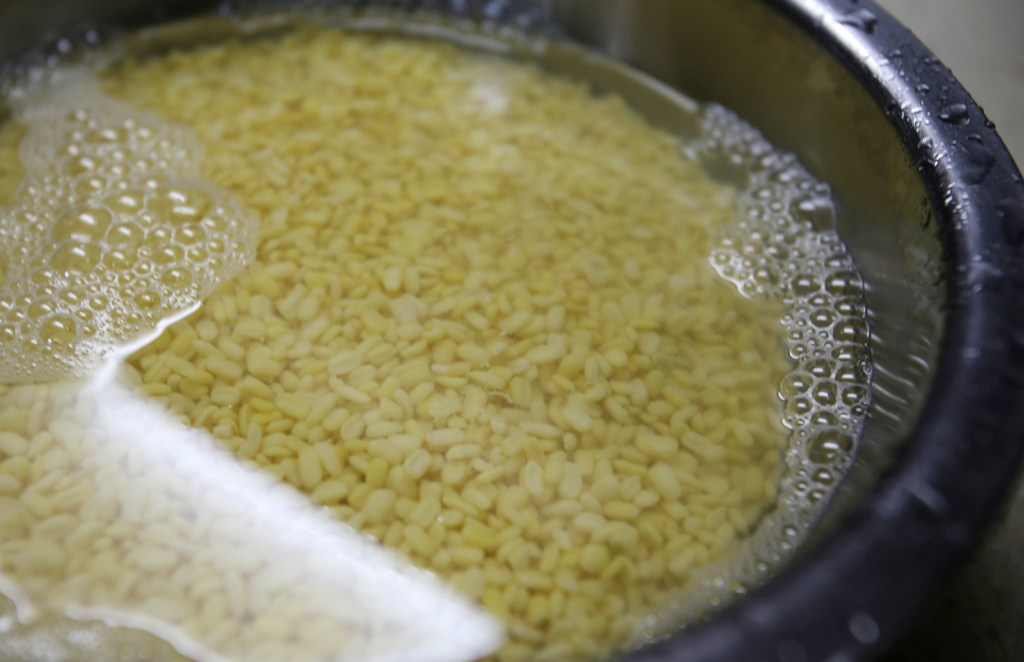

Like pandan flavor, green mung bean is another MUST for this cake, it’s like a main layer, a filling of this sweet, but…some pastry chefs create this cake not with beans but taro. I didn’t try it yet, but I guess it should be very nice as the taro flavor goes well with pandan, coconut milk! In order to make our beans smooth like silk, we need a blender! We blend cooked beans with coconut milk or just water!
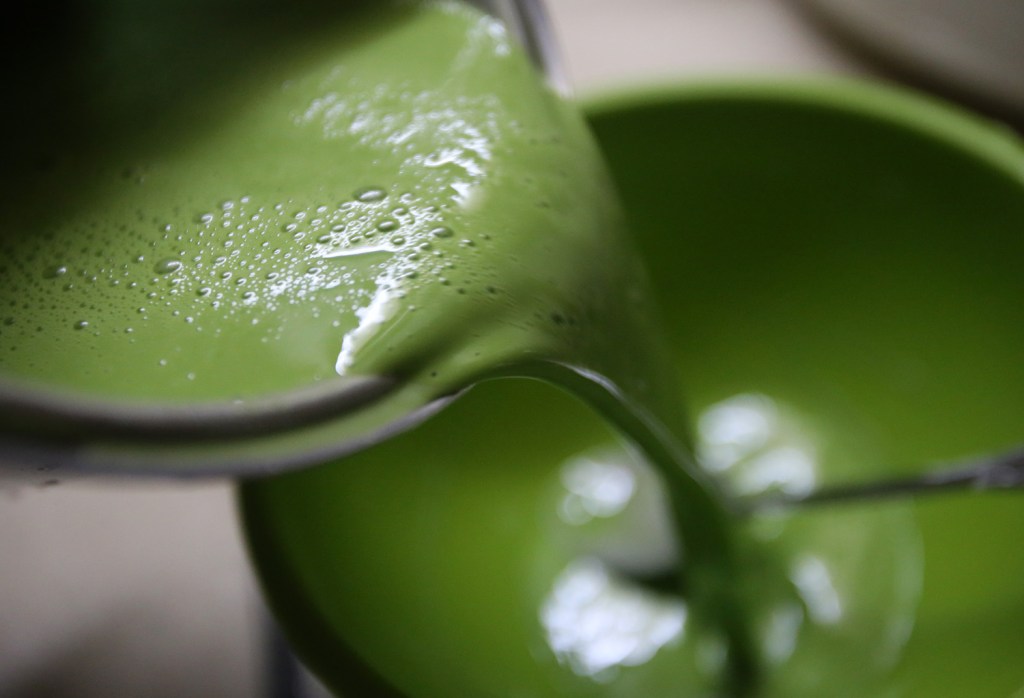
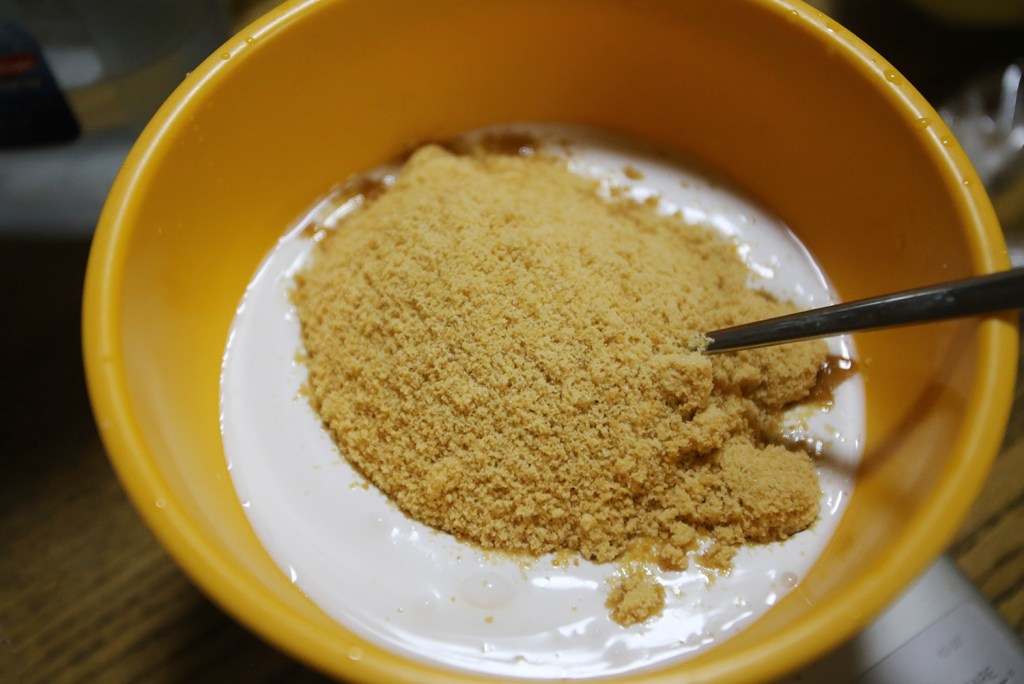

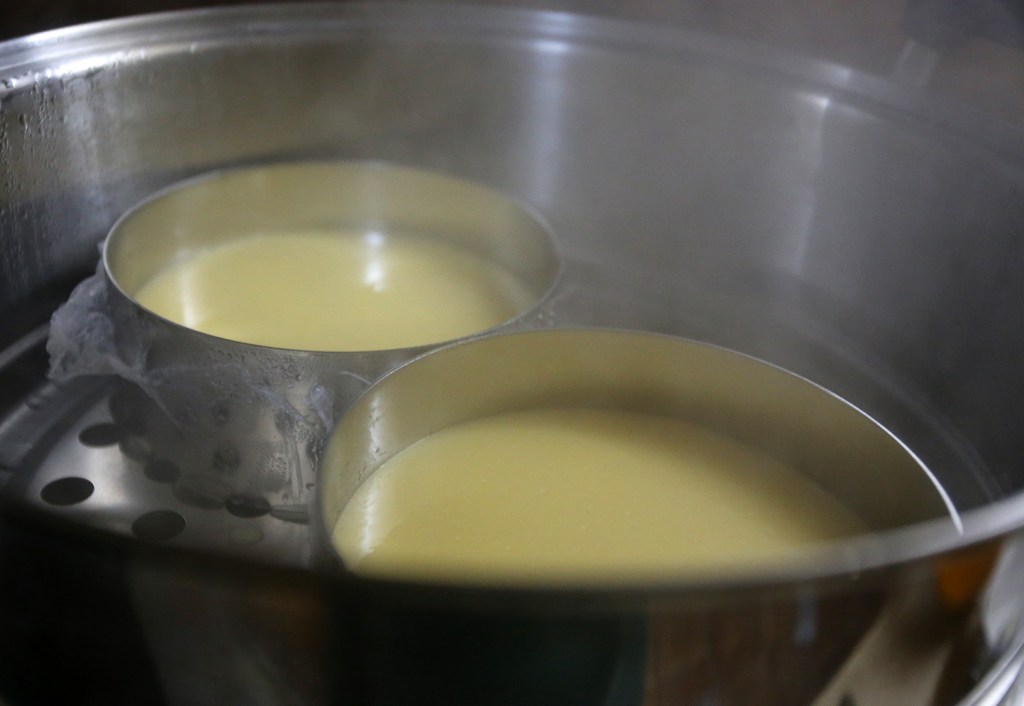
To make the pork’s skin cake we need a steamer and it requires our patience to do layer after layer. Usually we do three different layers by the order: the first layer at the bottom is the palm sugar, then the pandan leaf, following by the bean layers and it starts again with palm, or to reduce the cost, only two layers : pandan then bean, then pandan again and bean…This time to emphasize the palm sugar flavor I do it separately as the picture below.

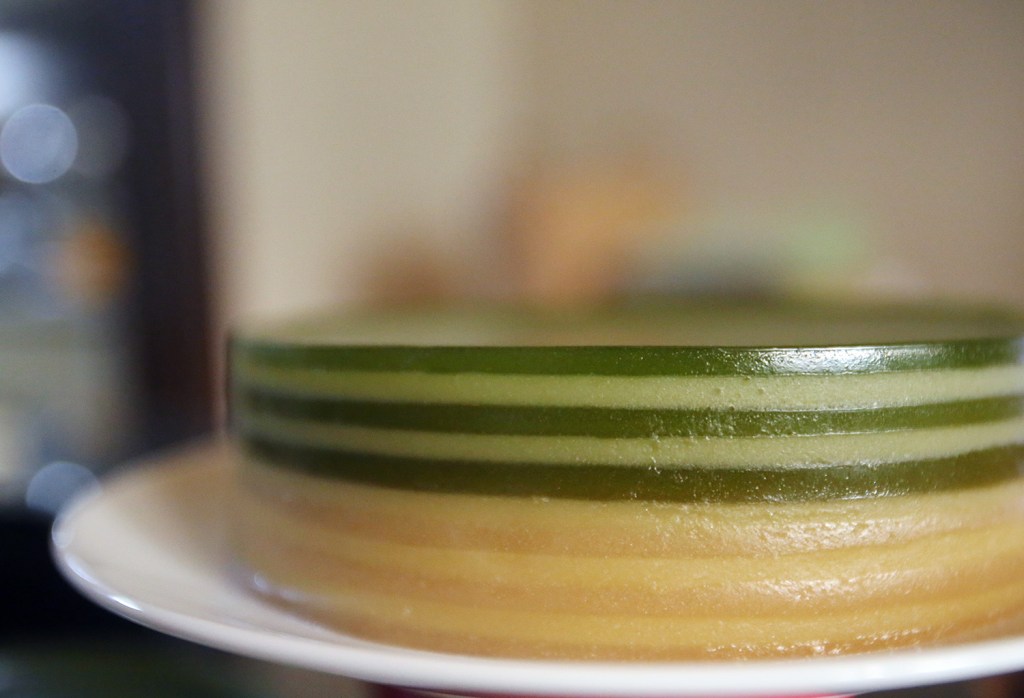
I made this cake by the recipe that I found on Youtube, not the best to me but as I’m very curious about palm sugar flavor so I tried it. To me, it may requires some adjustment as I found the pandan leaf layer a bit hard, anyway we can find other videos sharing how to do this cake on Youtube, much more details, explanations. Here I’m posting the recipe just for my record.
The recipe for round mould with diameter of 18 cm
- The green mung bean layer
- Green mung bean 100 gr.
- Coconut milk 200 ml.
- Tapioca flour 50 gr.
- Palm sugar (or regular sugar) 120 gr.
- Salt 1 gr.
- Note: Blend cooked beans with 50 ml. water together with palm sugar, salt and add the coconut milk and tapioca flour at the end. We may need a sieve to make sure the mixture is super smooth.
- The palm sugar layer
- Palm sugar 50 gr.
- Tapioca flour 90 gr.
- Rice flour 10 gr.
- Coconut milk. 50 gr.
- Water 90 ml.
- Note: Mix all together and sieve the mixture!
- The Pandan leaf layer
- Pandan leaf 50 gr.
- Water 100 ml.
- Pandan leaf extract 90 ml.
- Coconut milk 50 ml. (or just water, to make it less greasy)
- Tapioca flour 90 gr.
- Rice flour 10 gr.
- Sugar 50 gr.
- Salt 1gr.
- Note: Blend pandan leaf with water twice, do add the salt to keep the green color, mix well with coconut milk and flour (we may need blender and sieve as well)
As we need to steam layer by layer, so each layer requires 3 minutes as max. before adding another flavor, specially the green mung bean layer – a bit longer! Don’t forget to oil your mould!
This looks very good and for me, rather unusual. Thank you for writing in English so I can enjoy this recipe!
LikeLike
Thank you very much! I also miss my writing in English :)) The cake tastes very good, very chewy and flavorful! Hope you can try it at home or find it at some Asian market! I saw it once in Paris, frozen ones! Cheers
LikeLike